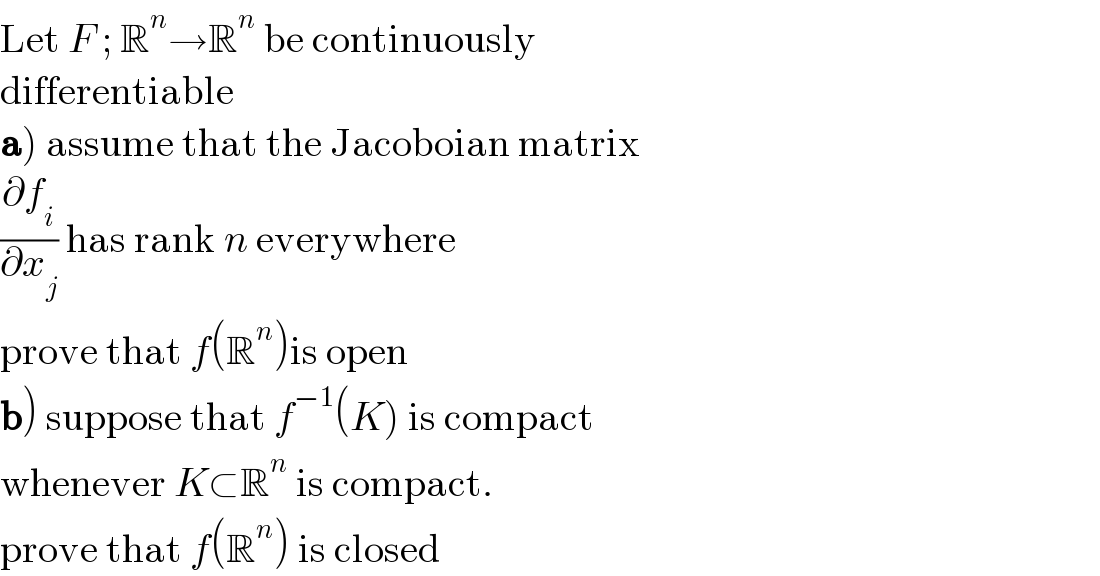
Question Number 214140 by deleted31 last updated on 29/Nov/24

$$\mathrm{Let}\:{F}\:;\:\mathbb{R}^{{n}} \rightarrow\mathbb{R}^{{n}} \:\mathrm{be}\:\mathrm{continuously} \\ $$$$\mathrm{differentiable}\: \\ $$$$\left.\boldsymbol{\mathrm{a}}\right)\:\mathrm{assume}\:\mathrm{that}\:\mathrm{the}\:\mathrm{Jacoboian}\:\mathrm{matrix}\: \\ $$$$\frac{\partial{f}_{{i}} }{\partial{x}_{{j}} }\:\mathrm{has}\:\mathrm{rank}\:{n}\:\mathrm{everywhere} \\ $$$$\mathrm{prove}\:\mathrm{that}\:{f}\left(\mathbb{R}^{{n}} \right)\mathrm{is}\:\mathrm{open} \\ $$$$\left.\boldsymbol{\mathrm{b}}\right)\:\mathrm{suppose}\:\mathrm{that}\:{f}^{−\mathrm{1}} \left({K}\right)\:\mathrm{is}\:\mathrm{compact} \\ $$$$\mathrm{whenever}\:{K}\subset\mathbb{R}^{{n}} \:\mathrm{is}\:\mathrm{compact}. \\ $$$$\mathrm{prove}\:\mathrm{that}\:{f}\left(\mathbb{R}^{{n}} \right)\:\mathrm{is}\:\mathrm{closed} \\ $$
